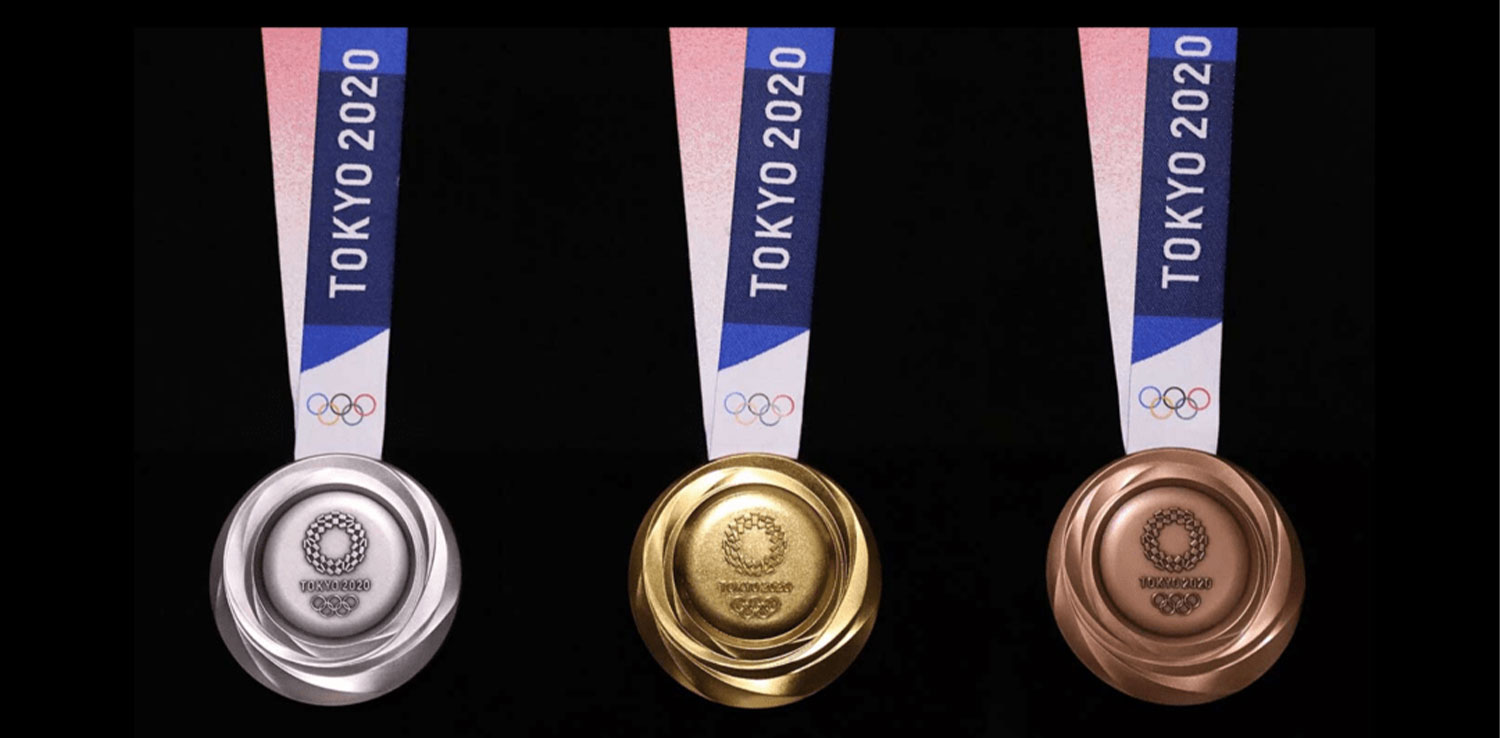The Tokyo 2020 Olympics Bubble (1): Sustainability in Design

Photo: France Olympique
The Tokyo 2020 Olympics is happening, and it claims to be the most sustainable Olympics so far. This massive sporting event is happening despite polling in May that revealed that 83% of the Japanese population were against the Olympics happening this summer. The Tokyo 2020 Olympics seems to be happening inside a very green, very safe bubble.
Japan has set the sustainability concept of the Tokyo 2020 Olympics as “Be better, together—For the planet and the people”. They will take the initiative to meet its responsibility to deliver sustainable games and showcase solution models of global sustainability challenges to people in Japan and around the world.
With five main sustainability themes and the addition of the Tokyo 2020 Sustainable Sourcing Code to ensure sustainability throughout the supply chains, Tokyo 2020 shows a start to a more sustainable Olympics.
View this post on Instagram
On the zero-waste front, key elements of the Games are made from recycled materials. The single beds within the Olympics Village are made from cardboard. Everything is to be recycled afterward, including the mattresses.
The uniforms for the torchbearers were designed by Daisuke Obana and made from recycled plastic bottles of Coca-Cola. The medals are made using recovered precious metals from e-waste. The podiums athletes will stand on are made from recycled plastic waste and will be repurposed afterward, produced by Procter & Gamble, the No. 7 plastic polluter of 2020, according to Green Matters.

The Olympic torches, designed by Tokujin Yoshioka, were made from recycled construction waste from temporary housing used in the aftermath of the 2011 Fukushima earthquake and tsunami. The relay torches and cauldrons holding the Olympic and Paralympic flames are fueled by clean hydrogen from the Fukushima solar plant, which is also used to run the Olympic Village.
Instead of building all brand-new venues to facilitate the Games, the Tokyo 2020 Olympics uses only eight newly built venues from scratch using sustainably sourced timber, ten temporary structures, and 25 already-existing venues. These structures will later be repurposed into Japan’s first hydrogen-powered town with schools, apartments, shops, and other facilities.
The Games is using as much renewable energy as possible. Transport within the Olympic Village is taken care of using a fleet of mostly electric or hybrid emission-free vehicles by Toyota. The Olympic Committee has plans for an “Olympic Forest”, consisting of 355,000 native trees in Mali and Senegal to protect the area from desertification.
Masako Konishi, a member of the Tokyo 2020 Olympics sustainability committee and the climate and energy project leader at World Wildlife Fund Japan, has told NPR that the Olympic organizers have collected 150% of the carbon credits needed to offset the Games’ greenhouse gas emissions, making the Olympics carbon negative.
Editor: Marlis Afridah
Read the follow-up article on the Tokyo 2020 Olympics Bubble (2): Sustainability Criticisms and COVID-19.

Co-create positive impact for people and the planet.
Amidst today’s increasingly complex global challenges, equipping yourself, team, and communities with interdisciplinary and cross-sectoral insights on sustainability-related issues and sustainable development is no longer optional — it is a strategic necessity to stay ahead and stay relevant.

Nazalea Kusuma
Naz is the Manager of International Digital Publications at Green Network Asia. She is an experienced and passionate writer, editor, proofreader, translator, and creative designer with over a decade of portfolio. Her history of living in multiple areas across Southeast Asia and studying Urban and Regional Planning exposed her to diverse peoples and cultures, enriching her perspectives and sharpening her intersectionality mindset in her storytelling and advocacy on sustainability-related issues and sustainable development.


 Indian Gig Workers Push Back Against 10-Minute Delivery Service Strain
Indian Gig Workers Push Back Against 10-Minute Delivery Service Strain  Call for Governance: Grassroots Initiatives Look to Scale Efforts to Conserve Depleting Groundwater
Call for Governance: Grassroots Initiatives Look to Scale Efforts to Conserve Depleting Groundwater  Integrating Environment, Climate Change, and Sustainability Issues into Education Systems
Integrating Environment, Climate Change, and Sustainability Issues into Education Systems  Finally Enforced: Understanding the UN High Seas Treaty
Finally Enforced: Understanding the UN High Seas Treaty  Risks and Opportunities of Submarine Communication Cables for Sustainable Development
Risks and Opportunities of Submarine Communication Cables for Sustainable Development  Rising Attacks and Violence Against Land and Environmental Defenders
Rising Attacks and Violence Against Land and Environmental Defenders